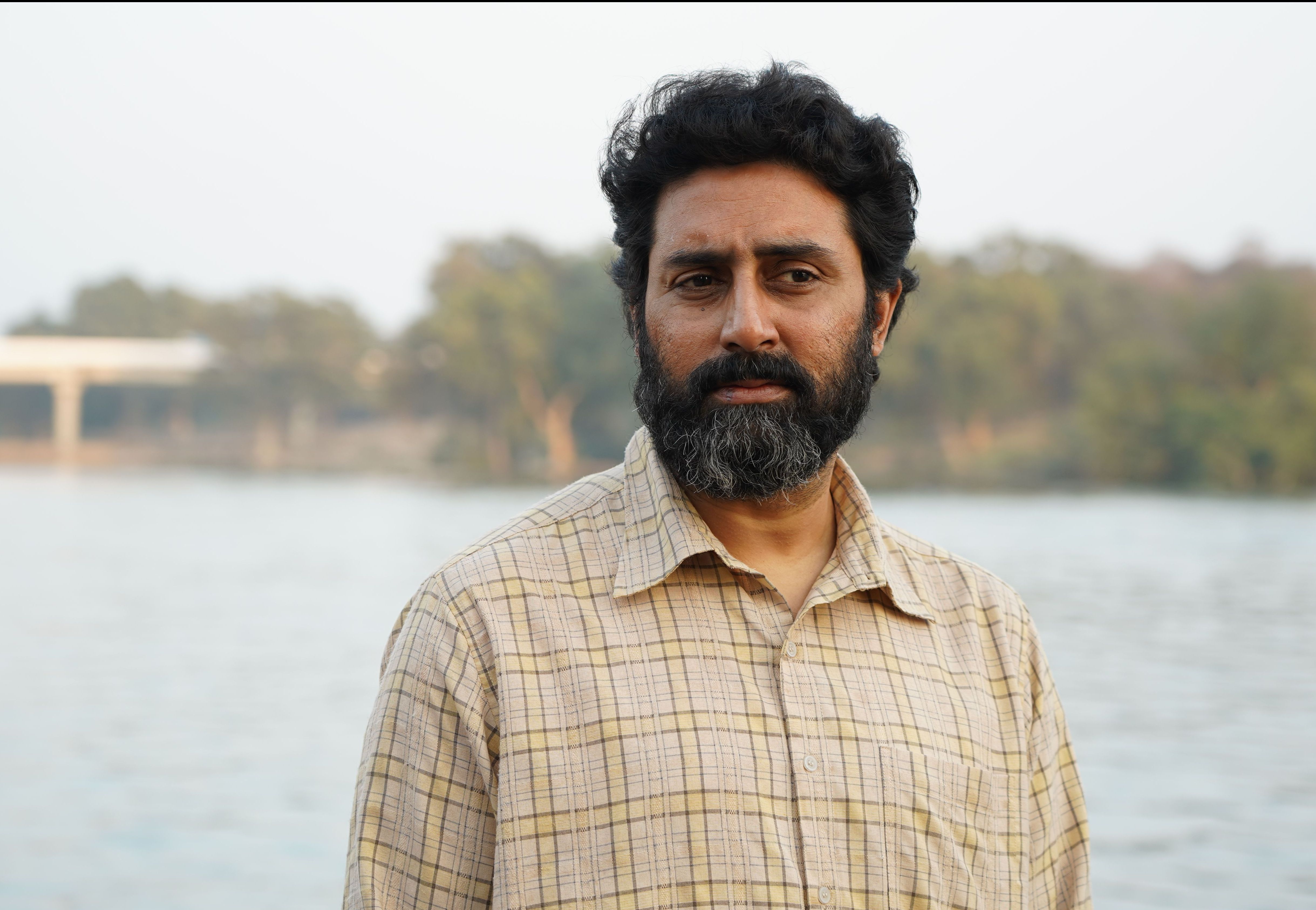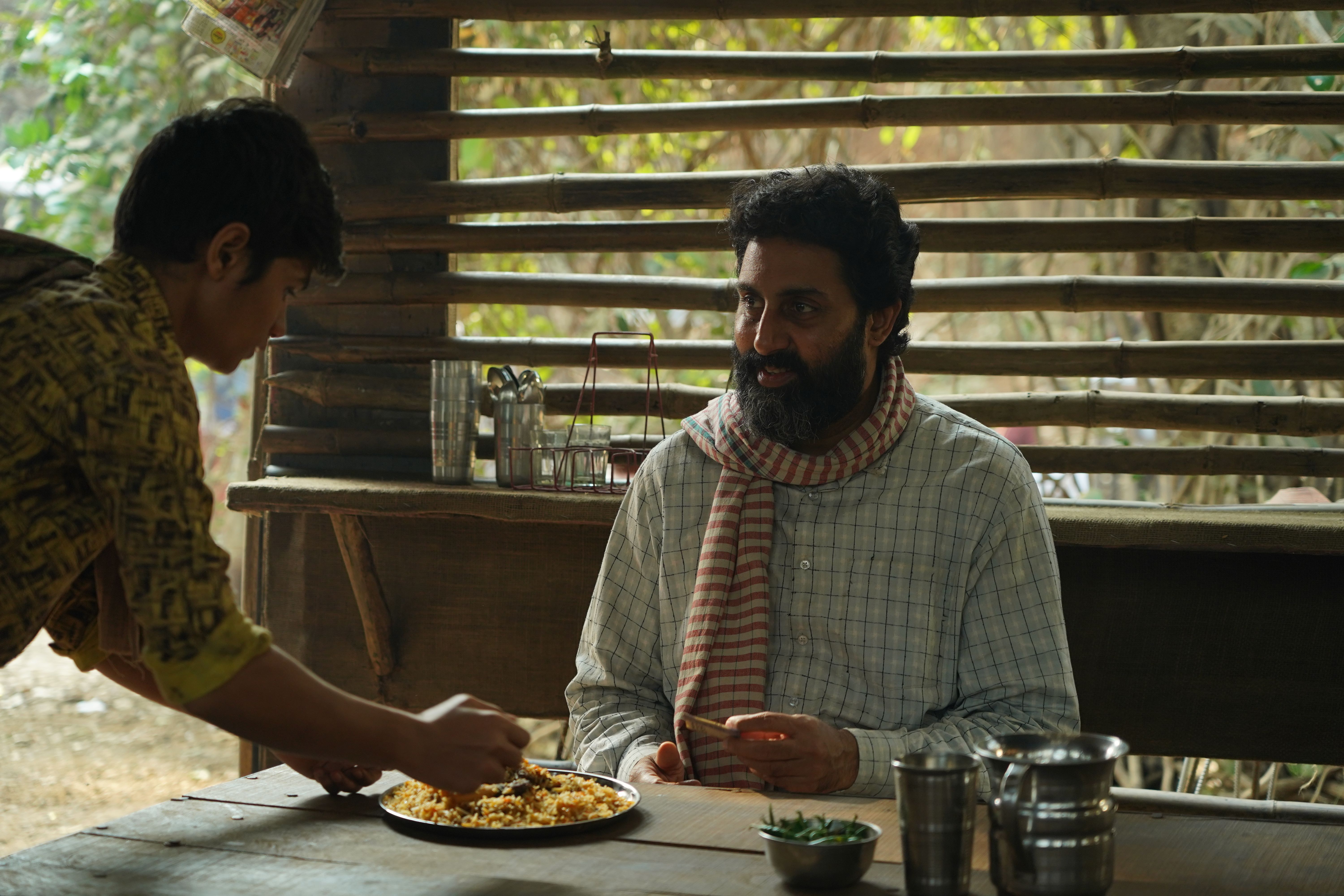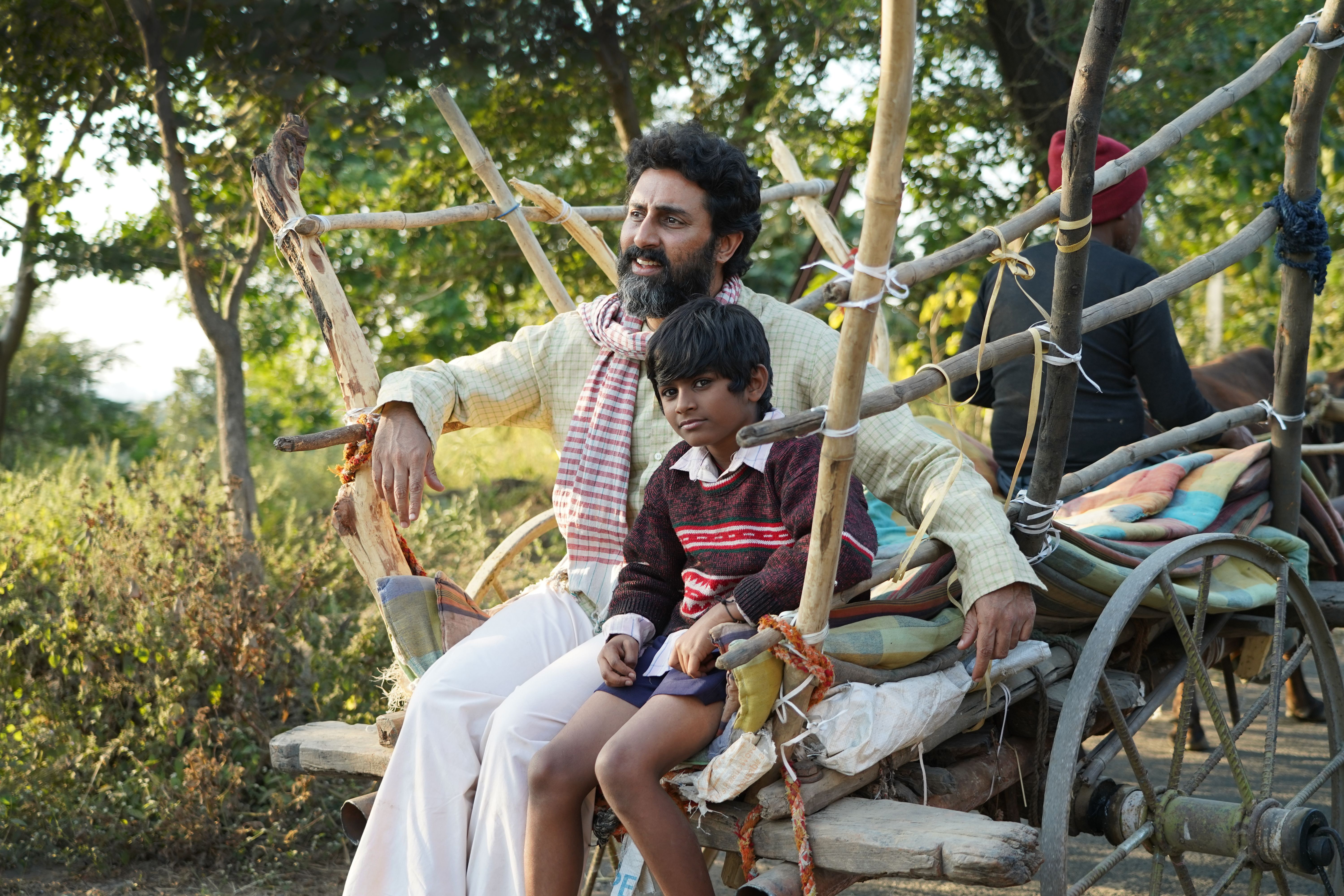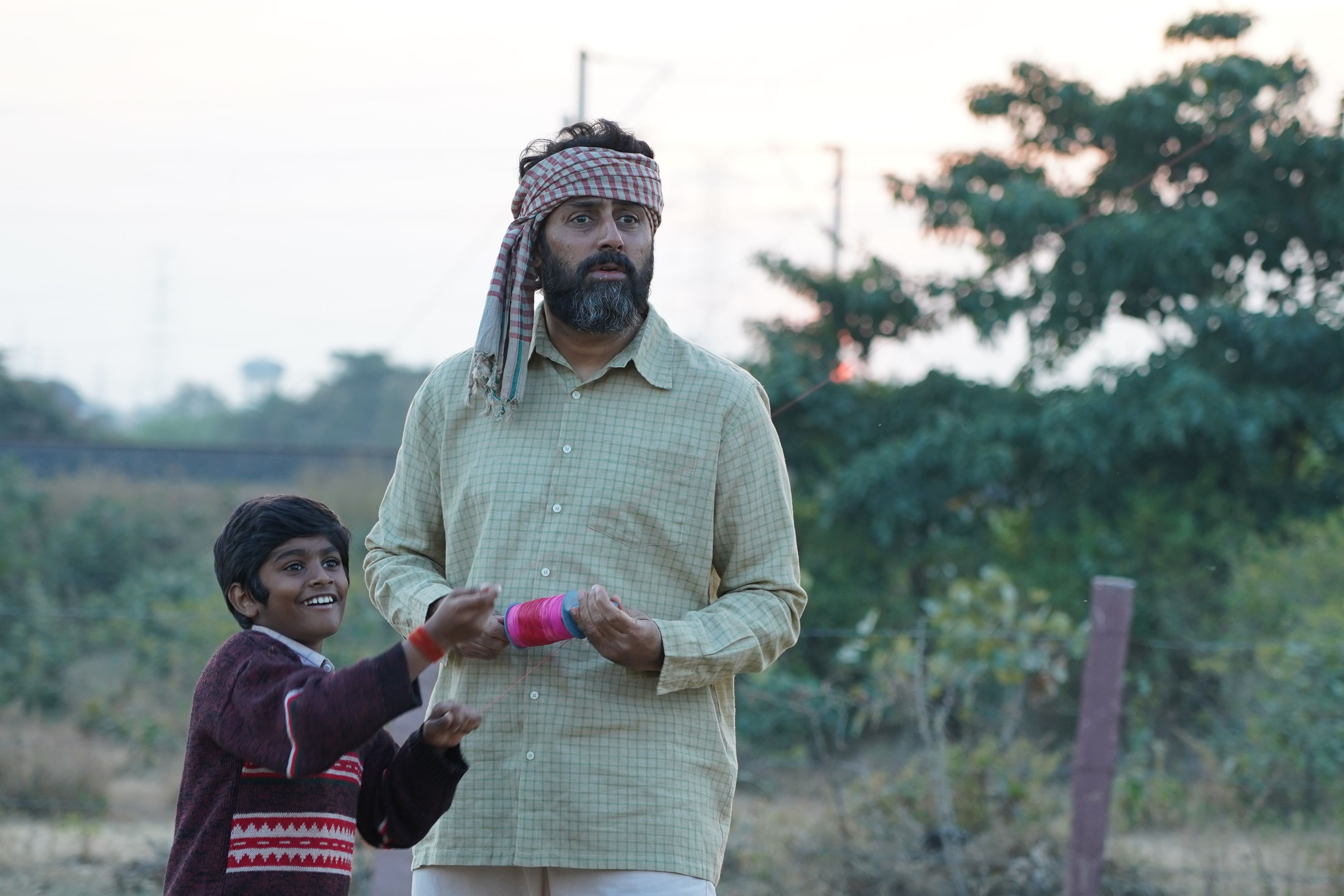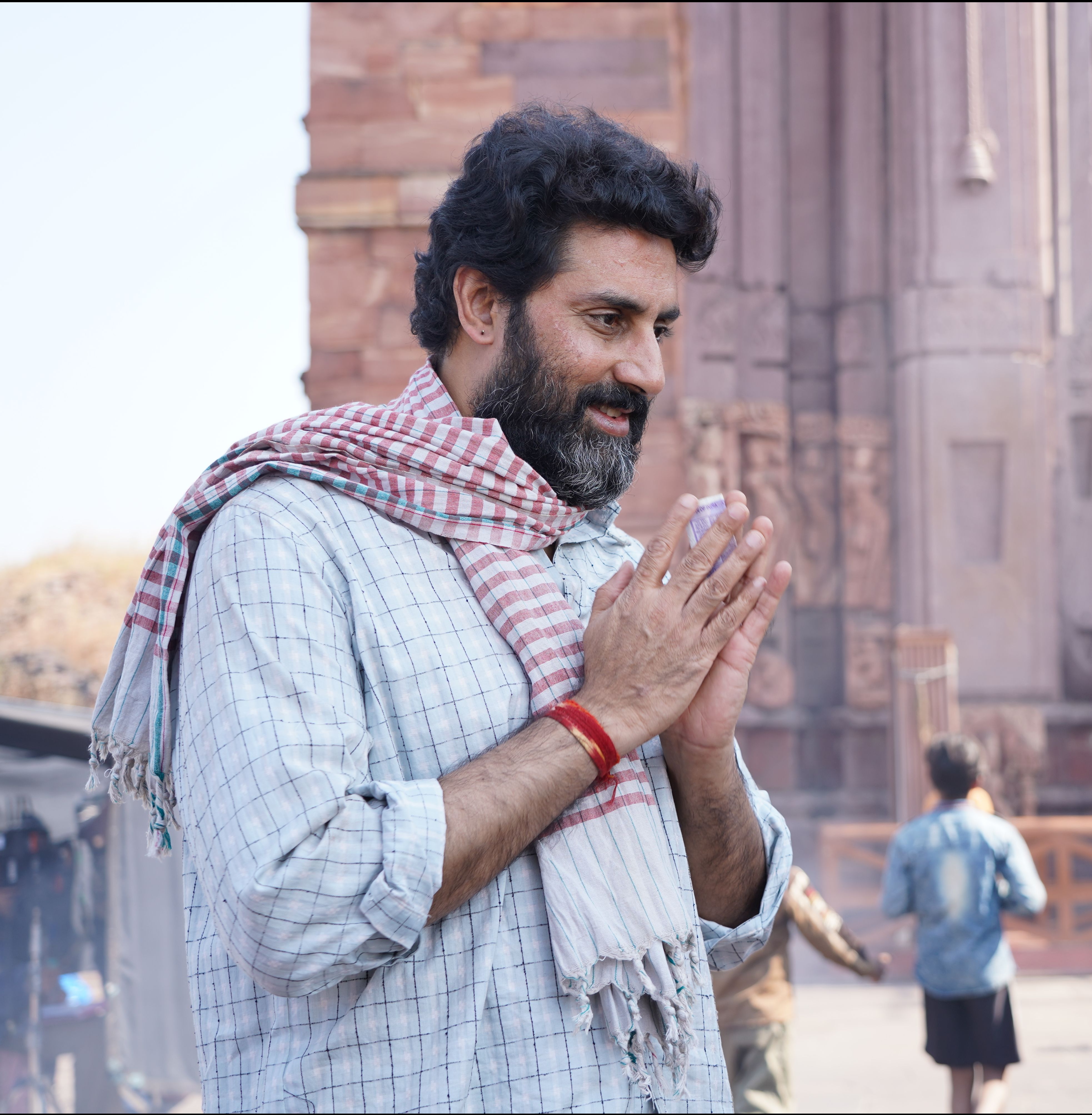No matter how hard you try, you can't sway me from my belief that Abhishek Bachchan is one of the most underrated actors we have today. Put a camera up close and see what magic this man’s eyes can create without moving any limb or spouting a single dialogue. Right from his debut with Refugee (2000), which coincided with the biggest debut Bollywood has ever seen—that of Hrithik Roshan—he has shown potential not only as a formidable actor, and also versatile one.
His 2004 included movies as diverse as Yuva, Naach, and Dhoom—a movie that launched a successful franchise, and he followed it up with Bluffmaster!, Sarkar and Bunty Aur Babli in 2005. So, when in 2025, the actor drops a heartwarming small-budget film on OTT, right on the back of Housefull 5—an out-and-out massy multistarrer event film mounted on a huge budget (apparently, it is Bollywood’s most expensive comedy film) which with a total India net collection of Rs 177.25 crore (till the time of going to press) has become second biggest Bollywood hit of 2025 and is still minting money at the box office, one should not be surprised. While in the U/A-rated corny theatrical release replete with adult jokes (that reminds you of the ‘90s Bollywood), Abhishek as the two-faced Jalbushan has got unequivocal love from all quarters for his boisterous performance, now with Kaalidhar Laapata—a movie directed by Madhumita and produced by Zee Studios, he brings back the understated and nuanced actor.
He aces it as the eponymous Kaalidhar, a middle-aged man struggling with loneliness and betrayal. The story begins with a disillusioned Kaalidhar leaving his family one fine day with the aim of simply disappearing from the people he has known all his life. Along the way he meets a stranger, an eight-year-old orphan, Ballu (played by Daivik Baghela). The two slowly form an unusual bond, and the duo sets out on a road trip to tick off Kalidhar’s bucket list. What unfolds is a tale of a child helping an adult past his prime come of age. Abhishek, just like his last few outings, which include movies like Be Happy, I Want to Talk, Ghoomer, Dasvi, and of course Ludo, gives a layered performance in this heart-warming story of friendship between two men divided by age, background, and world view, but united by empathy.
We caught up with the actor to talk about Kalidhar and beyond. Excerpts:
Q: According to you, what forms the core of KD’s relationship with Ballu?
Abhishek Bachchan: The core of the relationship between the two of them is one of equals. Also, empathy of abandonment—a basic common theme of being abandoned. Both Ballu and KD have been abandoned and have to fend for themselves, and that pretty much is the core. So, they understand each other and where they're coming from.
Q: What is the charm of a story of two strangers meeting and going on a journey? What is it that a stranger can bring out of you, which people who know you can’t?
Abhishek Bachchan: Yes, they both are strangers at the start of the film, and Ballu becomes almost like a guide—a moral guide, a life guide—to KD. The charm of two strangers meeting and going on a journey is that they get to share some basic emotions. A stranger can always give you a unique and outside perspective into your life and sometimes give you great perspective that you might not have encountered or even thought of before. They're always going to give you an outsider's view into your life and hence maybe give you a new way of looking at it. This in turn can give you a new understanding of your problems.
Q: What is the most challenging part about acting with children. What is your secret of creating such a level of comfort with them that reflects in the easy chemistry?
Abhishek Bachchan: Well, the kids that I've worked with are thorough professionals and wonderful co-artistes. They're so well prepared and ready for any of the challenges that the director might throw at them. It's not much of a secret. You have to treat them as equals and as the same as you. I treat them as any other co-star I would, and I enjoy the company of children, and I thoroughly love their approach to their work and the innocence and exuberance with which they approach their work.
Q: Tell us something about the characters of Kaalidhar and Batukeshwar (Ludo), a character that reminded me of Kabuliwalah… both are sort of outcasts when we meet them in the movie, and both take a journey into the unknown and find themselves.
AB: Well, Kali and Bittu are similar in certain emotions that they share and outlook on life. Yes, they are both outcasts of sorts and through the journey of the film they find themselves. It's an interesting theme and a wonderful thread that you have actually pointed out between the two. I think these kinds of characters also excite me—people that are discovering themselves through the journey of the film. And to find a resolution arc to them by the end of the film is something that I believe makes for great storytelling.
Q: You seem to have really found yourself a niche doing movies with children. Are you consciously looking for such movies?
AB: No, I'm not. It's a happy coincidence. I guess currently maybe a certain personal mindset just lends to these kinds of subjects and themes to resonate personally with me. But it's not really consciously looking for such movies. I guess it's just what appeals to you at that very point of time in the state of mind an actor might just be in.
Q: Did you watch the Tamil movie? How does changing the age of the character impact the surrounding relationships?
AB: This is an adaptation of KD and I think the soul is very different. I've consciously stayed away from watching the movie because I didn't want it to influence me in any which way. I approached this film as completely fresh and new to me. And every character that you play always stays with the actor, even after the film is over. And somewhere I do, albeit in a small part, look for what I can personally learn from the characters that I play in a movie and whilst telling a particular story. And if there's a nice quality that you can pick up from them, I think that's a very enriching experience.
Q: Food plays an important role in the movie—the biryani is almost like the black sesame soup of The Mood For Love. What is your favourite movie that uses food as a storytelling device?
AB: I never really thought of any similarity or parallel between In the Mood for Love and Kaalidhar Laapata. So, it's not something that we consciously work towards. In fact, you're the first person who's brought it to mind and I can understand why you would ask that question. Some of my favourite movies that use food as a storytelling device, I think the one that comes to mind would definitely be Like Water for Chocolate. It is a wonderful, wonderful film.
Q: How do you think OTTs help movies like Kaalidhar Laapata find its audience?
AB: Zee5 and OTT platforms like Zee5 give a wonderful opportunity to storytellers and to directors with very new and unique voices and give them a platform to tell their stories without having to maybe possibly incorporate some of the trappings of commercial cinema. When you make a movie for a movie theatre, there's a variety of audiences whose likes and dislikes and tastes you have to keep in mind whilst making your film. And I think OTT allows you to find, possibly a niche, or a much larger audience which would want to sit down and indulge in the style of storytelling that the director chooses. And I think they've done a wonderful job of giving several new storytellers and unique movie makers with their own unique voice a platform to showcase their talent.
Q: You have given some absolutely knockout performances in dark characters, you have aced comedy, you have been a romantic movie heartthrob, and you have played some very quiet and intense roles. Which one do you enjoy the most and why?
AB: Well, thank you very much for the compliment. I think it's wonderful and I feel very, very privileged and blessed that I work in an era which allows an actor to do a variety of roles, one film after the other. I like the fact that I'm not shackled down by a particular requirement or expectation from the audience. The fact that filmmakers find me worthy or my talent worthy enough to portray the characters, to be able to tell the story that they want to tell as me as a medium of that story, is something that I'm very flattered by and something that I enjoy thoroughly. As far as which is the easiest, they're all very difficult. They're all challenging and that's what you have to look for them. If they're going to be convenient and easy, then I would possibly not choose them. I look to challenge myself as an actor.
Q: Among all the tools an actor has at his disposal, what, according to you, is your strongest weapon?
AB: That's a very difficult question to answer because it also depends at what phase of life you're going through, what emotionally you feel like, maybe, what you are expressing. It is something that keeps changing. I hope that I am able to portray all the different emotions equally well—at least I try to. The quest is to try and perfect whichever genre you do and try and do my best for it. So, I'm not really sure what my strongest weapon would be.

